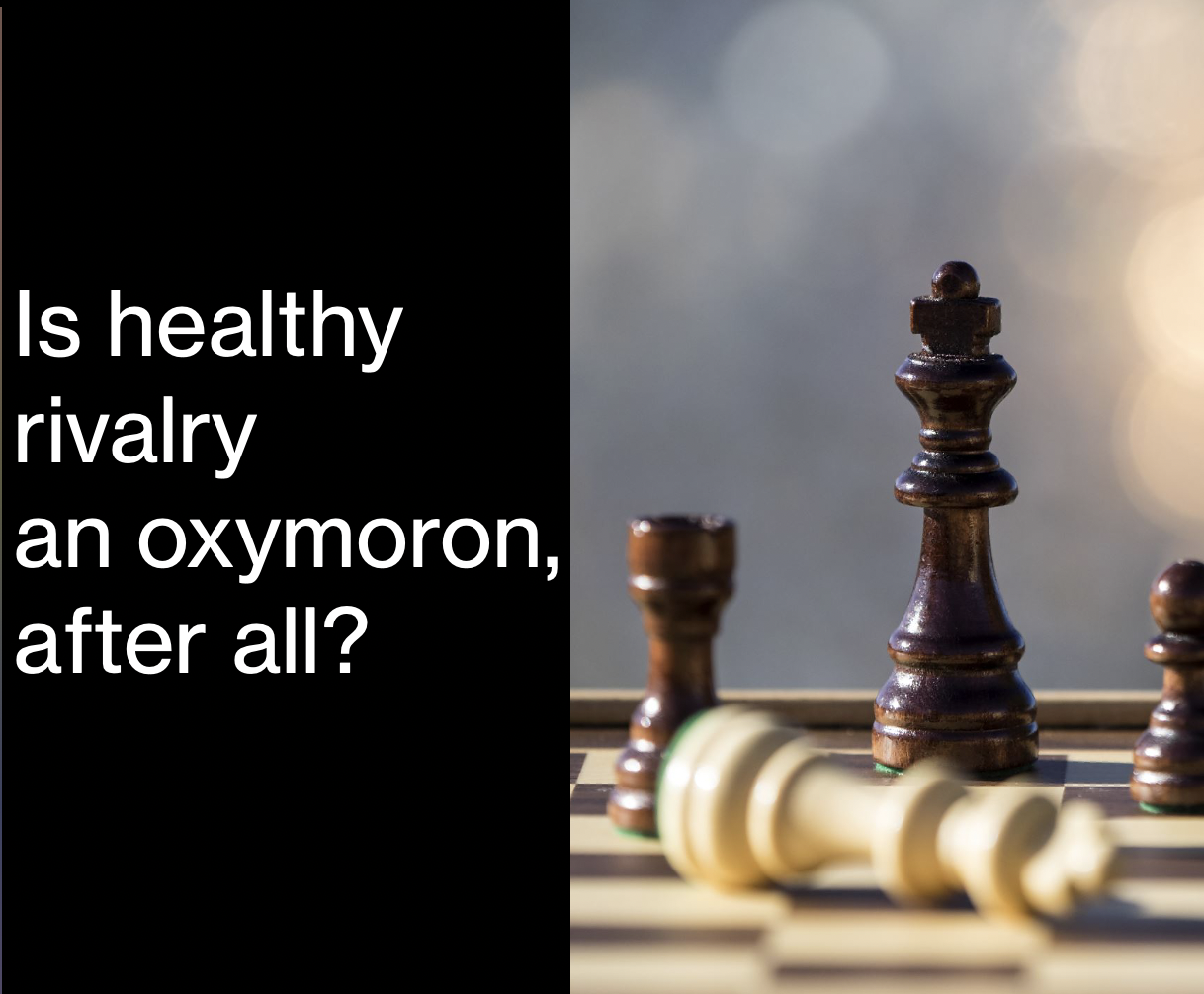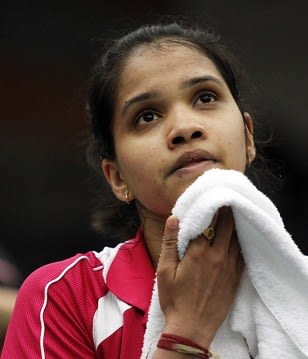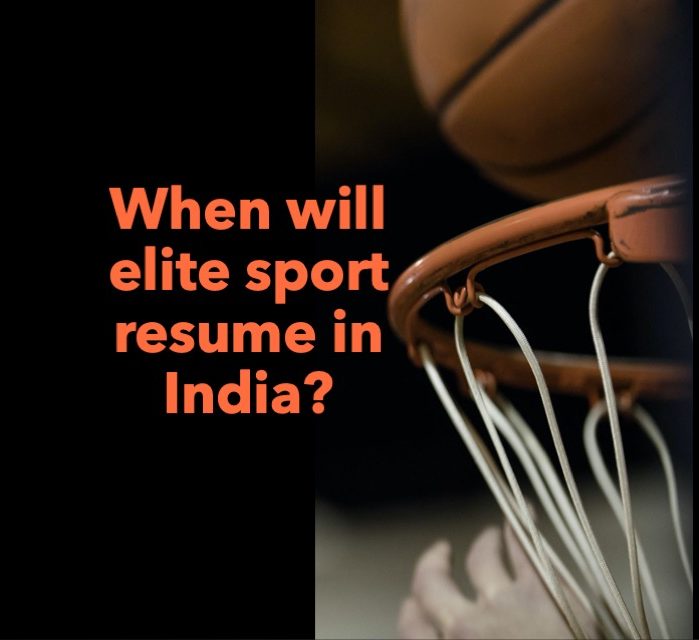Competition and rivalry. Intrinsic to sport – and, perhaps, life itself. What would sport be without legendary rivarly. Muhammad Ali and Joe Frazier in the boxing ring. Australia and England in the Ashes Cricket Test series, India and Pakistan in Cricket and Hockey, Bjorn Borg, Jimmy Connors and John McEnroe as well as Roger Federer, Rafael Nadal and Novak Djokovic in tennis
You could be on the same side and be rivals, too. England and Manchester United football players Teddy Sherringham and Andy Cole disliked one another for 15 years and yet could never patch up. Shaquille O’Neal and Kobe Bryant would not get along for a good part of the time together in the Los Angeles Lakers but developed mutual respect later on.
So, what triggered this nostalgia trip on famous rivalries in sport?
An interlude in an Insta Live featuring young sports psychologist Keerthana Swaminathan and young gymnastics coach Ragul Prabu. Their perspectives on competition and rivalry come from a different context based on their own experiences. Yet, they made me think. But before diving deeper into that, let me take you to the moment when they were forced to digress.
Early in their interaction, Keerthana Swaminathan asked Ragul Prabu to share the impact on kids of parents comparing them with others in his academy. He paused, looked up, right hand reaching out to his left shoulder. He was clearly divining the right words to articulate the thoughts forming in his mind.
He looked at the lens and spoke. “Even within a club, kids should compete and not become rivals. Parental comparison makes them rivals. The probably indulge in comparison to motivate their children. They probably don’t realise that it can have quite the opposite effect,” the gymnastics coach said, articulating a feature that exists even in the world beyond sport.
Mention of rivalry made me recall Leander Paes and Mahesh Bhupathi and their infamous split? I wondered how Olympic badminton medallists Saina Nehwal and PV Sindhu see one another now – as competitors or rivals? There are no prizes for guessing, though, how the boxing legend MC Mary Kom sees the younger Nikhat Zareen.
Having read about the Bombay-Delhi Ranji Trophy cricket rivalry in the 70s, the intense contests among Calcutta football clubs Mohun Bagan, East Bengal and Mohammedan Sporting, Services and Railways in men’s basketball, I had always believed that healthy rivalry was the something beyond competition.
Therefore, I felt inspired to ask Keerathana Swaminathan and Ragul Prabu a question on chat: “Isn’t healthy rivalry a good thing?” Sportingly, they took up my question without minding the shift in focus from coaching making a difference to the mindset of young athletes. I watched their eyes light up and listened with rapt attention, soaking in their points of view.
Ragul Prabu sought to differentiate between healthy competition and rivalry. “Rivalry has a negative connotation, it brings along envy,” he said. Keerthana Swaminathan was more brutal: “Rivalry is when you feel jealous about someone and try to cut the other person’s legs to seem taller. Competition is when you benchmark the other person and aspire to get better.”
I let Keerthana and Ragul get on with their conversation, slipping away to ponder if the term healthy rivalry is an oxymoron, after all. All along, I have looked at rivalry as a double-edged sword, a bit sharper than competitiveness. For, it can be used to fuel evolution while rivalry shines a light on both strengths and areas of improvement.
Is it possible for one to benefit from a situation when competition escalates to rivalry? Even if it demands a greater investment of energies, physical and emotional, it may be possible for one to deliver an enhanced performance. Of course, before getting immersed in making a rivalry work in one’s favour, an athlete may have to consider the cost he or she may end up paying.
An online article by Subrata Mukherjee, dating back to August 31, 2000, appeared to back their line of thinking. “Close as they are in literal meaning, rivalry and competition imply certain attitudes and actions so different as to seriously affect all who compete for the same position of honour,” he wrote.
“Rivalry is a groundswell word, suggesting turbulence by its very sound. It is used more often than its synonym, competition, to indicate brash actions, overriding ambition and uncontrolled emotions. Competition can be every bit as intense, arduous, stressful and aggressive as rivalry. But unlike rivalry, bristling with negativity, competition is positive,” Subrata Mukherjee wrote.
I respect that, though it went against the grain of my own thinking that rivalry is not such a bad thing at all. A sensible athlete will be able to train smart when preparing for a contest with a rival. That can help him or her become the best possible sportsperson each day and be ready for the big day.
It is only the inelegant, bitter rivalry that can have negative connotation. That can drag both competitors down significantly. For, such rivalry does not entail matching sports skills but brings in other elements like gamesmanship and even cheating. And shortcuts have never helped anyone in the long run, least of all athletes purportedly on a journey of excellence.
Former England captain and psychoanalyst Mike Brearley brings forth the Latin etymologies of the two words in his brilliant article titled Health Rivalry in The Point Magazine (September 8, 2011). “Both ‘rival’ and ‘compete’reflect this fact: rivalis meant ‘sharing the same stream’, competens meant ‘striving together with’, ‘agreeing together’ as in ‘competent’,” he wrote.
“We not only want to defeat our opponents, we also depend on them and their skill, courage and hostility in order to prove and hone our own skills, to justify proper pride. There is a unity of shared striving, as well as a duality of opposition,” he wrote.
“Healthy rivalry between respecting individuals requires and fosters a developmentally necessary differentiation of self from other. In many contexts rivalry is a necessary feature of life. It supports proper ambition; it can help develop a full self, with a full growth of one’s capacities; and it allows the other, in competitive situations, to strive and express him- or herself freely,” he wrote.
What of competition? “It is not always so straightforward or so simple. It is often contaminated by disrespect, contempt, envy and other factors. When such things predominate, competition is corrupted into triumph at any cost, friendly rivalry turns into poisonous scorn, and defeat becomes a humiliation to be averted or reversed at any cost,” Mike Brearley wrote.
Some food for thought, isn’t it?




Good article Sir, nicely explained…